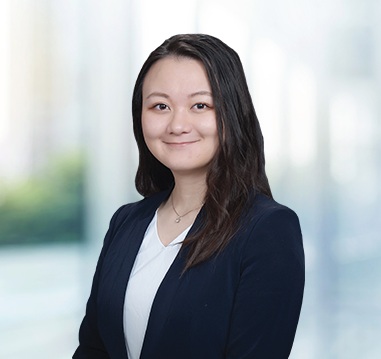Mai Yamakawa, MD, Receives ANF Development Grant for Research on NK Cells in ALS and FTD
Published January 22, 2024
Development Grants

Mai Yamakawa, MD, a NM fellow at UCLA, was selected to receive an ANF Development Grant to support her research project, “Causal Genetic Variation and Transcriptomic Signatures of the Peripheral Immune System in the Central Nervous System Pathology of ALS That are Conserved or Divergent Among ALS Patients and the Animal Models.”
Dr. Yamakawa’s interest in research began in medical school where she had an exceptional research mentor. “I had a wonderful research mentor in medical school studying the biochemistry of the dipeptide repeat proteins associated with the C9orf72 gene for ALS,” she shared. “I have always wanted to return to the research field through my 7 years of clinical training, however, this clinical experience morphed my research interest in ALS from a purely academic curiosity into better phenotyping of ALS patients for precise treatment development and cure.”
It is known that ALS is a fatal neurodegenerative disorder involving upper and lower motor neurons, and forms a disease spectrum with frontotemporal dementia (FTD). In ALS, cytotoxic natural killer cells (NK cells) have been well established in both human tissue studies and functional studies. However, understanding of NK cell biology in FTD is limited.
In this study, Dr. Yamakawa’s team will build a rigorous data-driven model that describes the role of NK cells in ALS/FTD, including their cell surface regulators, target cells and predicted molecular drivers. This work will be the bases for future research, performing human-relevant functional validation in cellular and animal models. Dr. Yamakawa explained, “With novel technology of single-cell RNA sequencing of postmortem brain samples, we have higher resolution for pathophysiology in ALS brains. My research will contribute to a new insight into neuroinflammation as a therapeutic target in ALS, and how it is similar or different from the animal model.”
Dr. Yamakawa’s short-term goal is to characterize neuroinflammation in brain and spinal cord samples from ALS patients, as neuroinflammation is an increasingly attractive therapeutic target with recent exponential discoveries in cancer immunotherapy. Additionally, she aims to systematically describe the difference in neuroinflammation in ALS patients and the most widely used SOD1 mutant mice, as this discrepancy could hinder further drug discovery and repurposing for immunotherapies. Her long-term goal is to delineate the molecular process of neurodegeneration that occurs in living patients with ALS, for a precision health approach for targeted molecular therapies.
Dr. Yamakawa is grateful for AANEM, ANF, and mentors who’ve guided her to this point. “I would like to thank the AANEM/ANF community for giving me with this funding opportunity, as this funding is vital for my career development in translational research for ALS,” she said. “I would also like to thank all my mentors, including but not limited to Drs. Melissa Spencer and Jessica Rexach at UCLA and my previous training institutions.”
